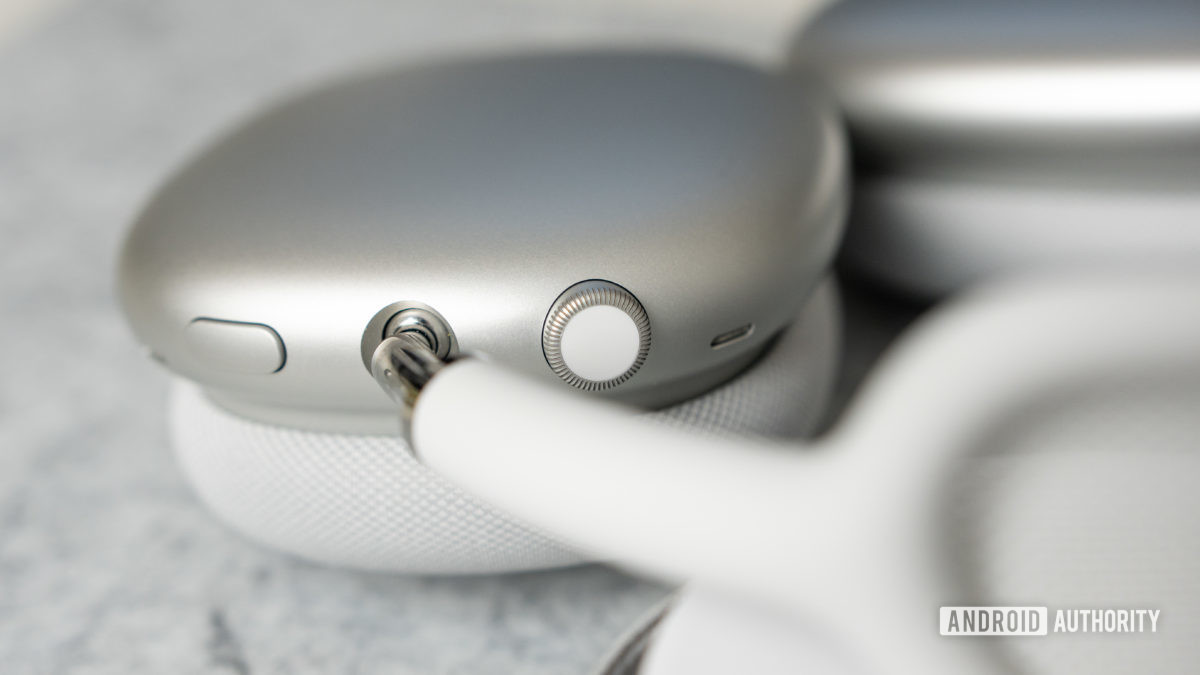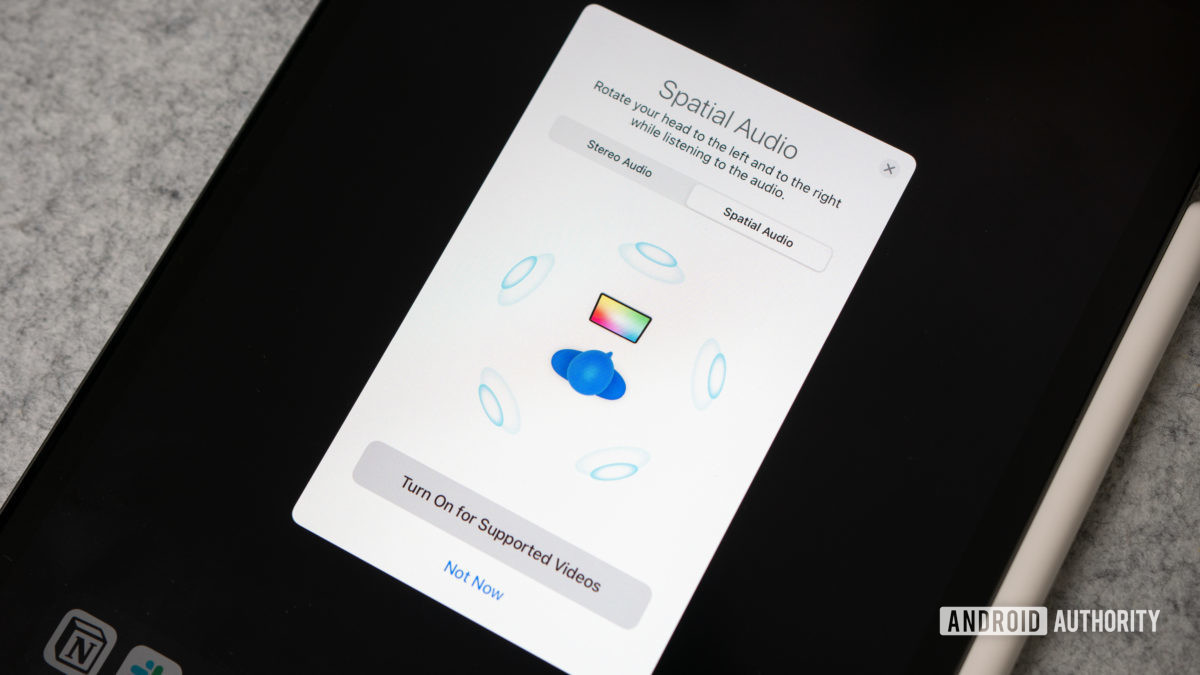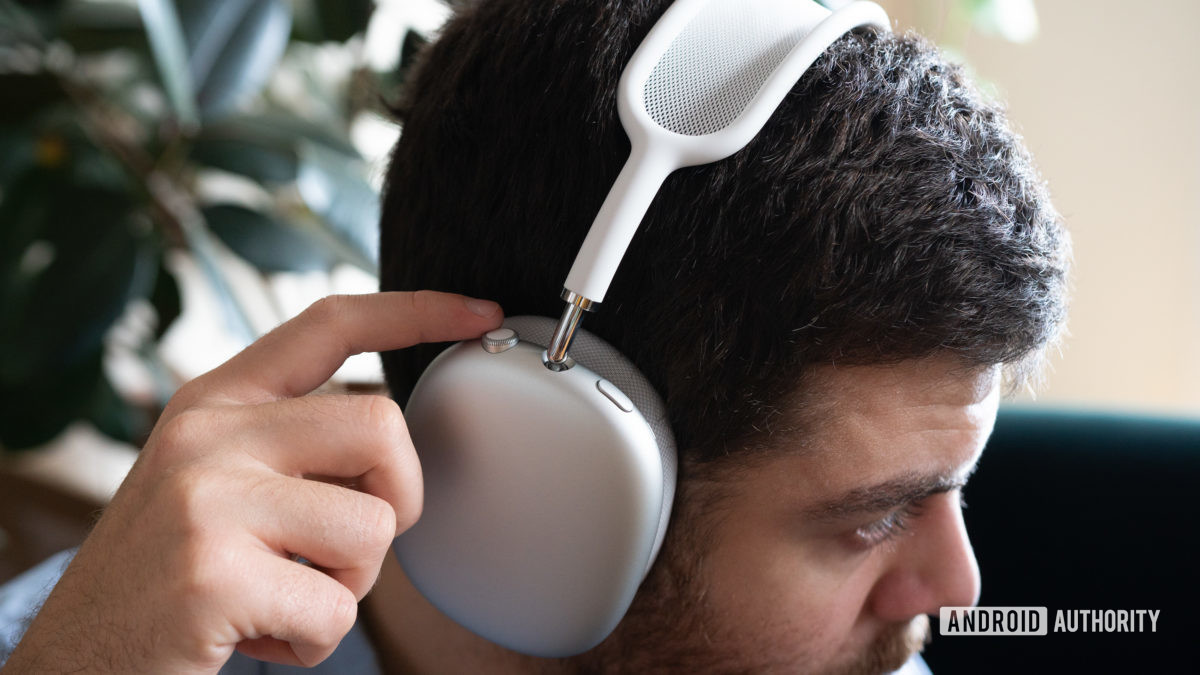Apple made a serious splash last year when it dropped the premium AirPods Max. The splash wasn’t due to groundbreaking specs, but rather the painful price tag. We’re used to the Apple Tax at this point, but the $549 sticker price is up there with paying $699 for some Mac Pro wheels. Is there any way to justify the cost? We’re putting the Apple AirPods Max vs the Bose Noise Cancelling Headphones 700 to find out which headset is worth your money.
Apple AirPods Max vs Bose Noise Cancelling Headphones 700: Premium fit and build?

Both sets of premium headphones feature over-ear designs. Fear not, glasses wearers, as you can listen comfortably for hours on end with either pair of noise-cancelling headset. However, the AirPods Max holds an edge in terms of padding while the Bose Headphones 700 are the lightweight option. In fact, Bose’s headset is a full 130 grams lighter. Neither headset holds a candle to the Bose QuietComfort 35 II or Shure Aonic 50 in terms of true comfort though.
Apple and Bose’s flagship headphones share sleek, minimalist designs and plenty of premium metal. They both skip the foldable hinges, so you’ll have to account for a bit of extra storage space. Bose’s included case is far more secure than the AirPods Max Smart Case, though you’ll need Apple’s case in order to power off your expensive headset.
The Bose case fully protects your investment while Apple’s Smart Case does nothing to guard the mesh headband against anything in your backpack. Sure, you can buy a third-party case, but you’re already spending a serious pile of cash. Bose easily takes the protection crown in this comparison.
See also: Working from home? Check out these noise-cancelling headphones.
Bose offers better direct controls

A solid set of controls is a must-have on any premium headphones, and Bose is the hands-down winner. You can use the touch panels on the Headphones 700 to manage your playback, volume, and more. Better yet, you can add gesture shortcuts, which is something that Apple doesn’t allow.
Instead, Apple’s headphones rely exclusively on tactile controls. Forget about swiping and tapping, you’ll have to use the Digital Crown and Noise Control button.
Bose Noise Cancelling Headphones 700 controls
| Right headphone action | Result |
|---|---|
| Two taps | Play/pause Answer/end call |
| Press and hold | Decline call |
| Swipe forward/backward | Skip forward/rewind |
| Swipe up/down | Increase/decrease volume |
| Physical buttons | Power, voice assistant, noise cancelling |
| Bose Music app | Custom controls |
Apple AirPods Max controls
| Action | Media control | Call control |
|---|---|---|
| Noise Control button | Toggle ANC and Transparency | None |
| Remove/wear headphones | Auto-play/pause | None |
| Rotate Digital Crown | Adjust volume | None |
| One press of Digital Crown | Play/pause | Answer/end call, answer incoming call and put current call on hold |
| Two presses of Digital Crown | Skip track | Reject incoming call, answer incoming call and end current call |
| Three presses of Digital Crown | Rewind track | None |
| Hold the Digital Crown | None | Reject incoming call during call |
| Custom controls? | ANC toggle | None |
Both headsets offer direct voice assistant support, but your choices are limited. You can only talk to Siri hands-free with the AirPods Max, while the Bose Noise Cancelling Headphones 700 support Amazon Alexa voice integration.
See also: Sony WH-1000XM4 vs Bose Noise Cancelling Headphones 700
How well do these costly headphones stay connected?

Both headsets rely on the Bluetooth 5.0 firmware and support the same codec shortlist: SBC and AAC. That means that only iPhone owners will benefit from consistent high-quality audio on both pairs. Android still has trouble with the AAC codec depending on the hardware.
You should have no problem with connection stability on either headset, but Bose once again has an advantage. It’s the only option with Bluetooth multipoint, so you can add more than one playback source simultaneously. While it’s a nice feature to have, multipoint still isn’t perfect.
Even though Apple’s AirPods Max doesn’t support Bluetooth multipoint, it does have automatic source switching among iOS devices. It’s a seamless process. The headphones automatically pick up on media playback from the most recently active device.
Which headset is easier to set up?
If you have an iPhone, it’s far easier to set up a pair of AirPods Max than it is to add the Bose Noise Cancelling Headphones 700. The first time you power on the AirPods Max within range of your iPhone, you should automatically see a pop-up asking for permission to pair. Simply accept the permissions and the rest is automatic.
However, you’ll have to navigate your phone’s Bluetooth menu to add the Bose headset on either Android or iOS. It’s still as easy as choosing the right headset from the available options, but it’s not quite as automatic.
The AirPods Max has a software edge, at least if you have an iPhone

It’s not a surprise, but Apple’s AirPods Max work best with other Apple products. Even the most basic features like periodical firmware updates are limited exclusively to Apple hardware. Android users who go for the AirPods Max will need to borrow an iPhone or buy an iPad just to keep their cans up to date. You’ll also need an iPhone for things like hands-free Siri access, control over the Noise Control button, and Adaptive EQ.
Don’t even think about a custom EQ profile though; Apple ignores this feature no matter what device you have.
On the bright side, Apple pushed out plenty of new features for all of its AirPods alongside iOS 14. Chief among them is Spatial Audio. The AirPods Max supports Spatial Audio, which uses software to track your head position and create a 3D effect. Apple cleverly encodes sound into objects that asynchronously fly through the left and right channels, mimicking the way we head the world around us. It’s a game-changing feature if you watch a lot of videos with headphones on.
The benefits of Bose AR and the Bose Music app
You can grab the Bose Music app on either the App Store or Play Store, and it works identically on either system. You’ll need the app to adjust your noise-cancelling preferences, change the multifunction button, and craft your custom EQ profile. If you’d rather keep things simple, you can always stick with the Active EQ option which optimizes audio on the fly.
You can create a custom EQ for the Bose Headphones 700, something the AirPods Max doesn't permit.
Bose’s app is also one of the easiest ways to control all of your music streaming services. You won’t have to hop between apps any longer. It’s also a must-have if you own Bose smart speakers or soundbars as it grants control over multi-room playback and lets you pair speakers together.
The Bose Music app is even your gateway to Bose AR. It’s the company’s augmented reality platform that combines its impressive audio chops with top AR apps. You won’t find universal support yet, but it keeps growing.
How does the battery life compare?

The AirPods Max are rated to last 20 hours on a single charge with ANC enabled. This falls short of the recorded 21 hours, 25 minutes of playtime SoundGuys recorded from the Bose Noise Cancelling Headphones 700.
Regardless of battery life, both headsets happily support quick charging. You should get about 90 minutes of playback after just five minutes with your AirPods Max connected to a Lightning cable. Bose’s USB-C charging for the Headphones 700 will net you 210 minutes of playback after 15 minutes.
Apple’s AirPods Max steal the Bose Noise Cancelling Headphones 700 noise-cancelling crown

Bose may be the active noise-cancelling go-to, but the AirPods Max has come in and taken the crown. Apple’s ANC achieves better results, making some midrange sounds up to four-times quieter. Apple’s headset also performs better against low-frequency sounds like airplane engines and trains on tracks.
Don’t get us wrong, both headsets are among the industry’s best in terms of noise-cancelling. However, Apple packed an H1 chip into each headphone for an extra dose of power. Apple’s headset also uses a total of eight microphones exclusively for ANC. Bose, on the other hand, only uses six of its eight onboard mics for ANC. No matter which headset you buy, your world will be much, much quieter.
Which pair of headphones sound better?

Based on our objective testing, Bose’s noise-cancelling Headphones 700 has a more accurate frequency response compared to the Apple AirPods Max. Bose’s headset avoids any major flaws, and you can always build a custom EQ in the Bose Music app.
Apple’s frequency response shows a slightly more consumer-friendly result with a solid boost in the bass range. We measured up to 6dB of amplification, which means sub-bass notes occasionally mask the midrange notes. Apple gave its treble notes a kick too, so you should pick up on string instruments and vocals better.

Both companies cut down on the upper-midrange notes, which is actually a good thing. It minimizes the unwanted harmonic resonances that already occur within your ears. We’ve seen similar moves by other companies, which just shows how far technology has come. This section is nearly a tie, but Bose is just slightly more accurate.
Is there hope for a headphone jack?

The short answer is that yes, both sets of headphones support wired playback. It’s great news if you subscribe to premium services like Tidal HiFi and Amazon Music HD. However, it’s not as easy as it sounds. Bose has a 2.5mm jack on its noise-cancelling Headphones 700, so you’ll need to keep the included cord close at hand. Apple’s headphones require you to have an expensive Lightning-to-3.5mm cable, as well as a potentially costly dongle if your phone doesn’t have a headphone jack.
Apple AirPods Max vs Bose Noise Cancelling Headphones 700: How is the microphone quality?
Apple and Bose packed advanced microphones into both the AirPods Max and noise-cancelling Headphones 700, keeping this battle as close as ever. The AirPods Max use three microphones for voice recording, though it shares two of them with ANC controls. Bose allows four microphones to help with voice recording and also shares two of them with ANC.
Both headsets are great for personal use as well as conference calls, but you’ll have to choose carefully if you’re recording. The AirPods Max transmits better audio quality when paired up with an Apple device, as is typical for the Cupertino company. You’ll also want to use the newest Apple device in your arsenal for the absolute best results.
Apple AirPods Max microphone demo:
Bose Noise Cancelling Headphones 700 microphone demo:
 Loading poll
Loading pollApple AirPods Max vs Bose Noise Cancelling Headphones 700: Which one should you buy?

Unless you have an iPhone and a pretty impressive budget, we recommend buying the Bose Noise Cancelling Headphones 700. While they don’t have fancy features like Spatial Audio, Bose’s cans do offer far better EQ support and custom controls.
We’re not saying that Apple’s AirPods Max are bad headphones. In fact, they’re a really excellent option in terms of noise-cancelling and sound quality. However, those powerful features come at a truly eye-watering cost that few of us can justify. Apple makes incredible hardware and integrates new products into its ecosystem with the best of them, but really — $549? The price alone makes the AirPods Max a tough sell for most consumers.
Should you get something else instead?

If you and your wallet aren’t satisfied with either of these class-leaders, we have good news — ANC is hot right now. One of your best bets outside of this David and Goliath battle is the Sony WH-1000XM4. It’s just as good of an ANC option (other than the AirPods Max), and it features customizable sound and a comfortable all-day experience. We’re also fans of the microphone quality, connection strength, and even the Bluetooth multipoint function.
You’ve also got the Shure Aonic 50 to consider at a premium price point. The microphone is excellent, as is the sound quality. The noise-cancelling doesn’t quite catch up to Apple, but the Aonic 50 are arguably the most comfortable cans of the entire lot.
Maybe the price tag is what’s tripping you up in this whole equation, but don’t worry. We live in a society where there’s a surplus of affordable options. For example, Sennheiser offers the PXC 550-II and AKG comes in with its N60NC. Both pairs come to play with the big boys, but you can usually find them for around $200.
Next: The best headphone deals
No comments:
Post a Comment